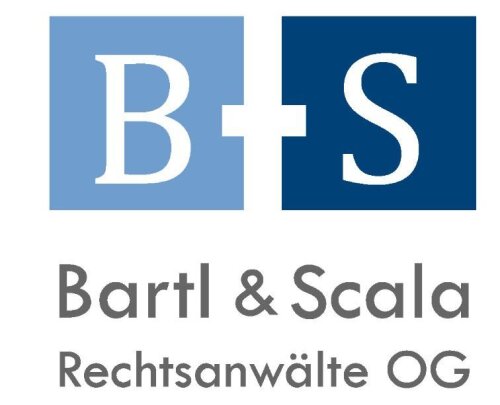Best Employment Rights Lawyers in Graz
Share your needs with us, get contacted by law firms.
Free. Takes 2 min.
List of the best lawyers in Graz, Austria
About Employment Rights Law in Graz, Austria
Employment Rights in Graz, Austria, are governed by a combination of national and regional laws designed to protect workers and ensure fair working conditions. These laws cover a wide range of topics, including minimum wages, working hours, discrimination, harassment, and the rights of part-time and temporary workers. In Graz, employees benefit from robust protections that aim to prevent exploitation and ensure a safe and non-discriminatory workplace.
Why You May Need a Lawyer
There are several situations where seeking legal advice on employment rights might be necessary. You might face unfair dismissal or wrongful termination, wage disputes, workplace discrimination or harassment, breaches of contract, issues with leave entitlements, or unsafe working conditions. A lawyer specialized in employment law can help you navigate the complexities of your case, understand your rights, represent you in disputes, and achieve a favorable resolution.
Local Laws Overview
Key aspects of local laws in Graz pertinent to employment rights include:
- Arbeitszeitgesetz (Working Time Act): Regulates the hours employees can work, including rest periods and overtime.
- Gleichbehandlungsgesetz (Equal Treatment Act): Prohibits discrimination based on gender, ethnicity, religion, age, or sexual orientation.
- Mutterschutzgesetz (Maternity Protection Act): Provides protections for pregnant employees and those on maternity leave.
- Arbeitsvertragsrechts-Anpassungsgesetz (Act on Employment Contracts Amendments): Addresses issues related to employment contracts, including terms and conditions of employment.
- ArbeitnehmerInnenschutzgesetz (Employee Protection Act): Ensures safe and healthy working conditions for employees.
Frequently Asked Questions
1. What is the minimum wage in Austria?
The minimum wage in Austria is typically determined through collective bargaining agreements for different sectors. As of recent standards, many sectors have set a minimum wage of approximately €1,500 to €1,700 per month for full-time employees.
2. Can I be dismissed without cause?
While Austrian law allows for dismissal without cause (unbegründete Kündigung), it must follow specific notice periods and cannot be for discriminatory or wrongful reasons.
3. How much notice is required for termination?
The notice period for termination depends on the length of service and collective agreements but generally ranges from 6 weeks to 5 months.
4. What are my rights if I face discrimination at work?
If you face discrimination at work, you can file a complaint with the Gleichbehandlungsanwaltschaft (Equal Treatment Office) or seek legal counsel to file a lawsuit.
5. What constitutes harassment in the workplace?
Harassment includes any unwanted conduct related to a person’s gender, ethnicity, religion, age, or sexual orientation that creates an intimidating, hostile, or offensive environment.
6. What are my entitlements for maternity leave?
Maternity leave in Austria includes 16 weeks of paid leave (8 weeks before and 8 weeks after birth), which can be extended in cases of complications or multiple births.
7. Are there protections for part-time workers?
Part-time workers are entitled to the same rights and protections as full-time workers, including fair wages, non-discrimination, and safe working conditions.
8. What should I do if my employer breaches my contract?
Consulting with an employment lawyer is essential if you believe your employer has breached your employment contract. They can help you understand your rights and options for legal action.
9. Can I refuse overtime work?
Employees can refuse overtime if it exceeds the legal limits or if there are reasonable grounds, such as health or family obligations, unless otherwise stated in the employment agreement.
10. What are my rights regarding workplace safety?
Under the ArbeitnehmerInnenschutzgesetz, employers must ensure a safe and healthy workplace. Employees have the right to adequate training, protective equipment, and can report unsafe conditions without fear of retaliation.
Additional Resources
Consider reaching out to the following resources for additional support:
- Arbeiterkammer (Chamber of Labour): Provides legal advice, supports workers' rights, and offers representation in disputes.
- Gleichbehandlungsanwaltschaft (Equal Treatment Office): Assists with issues related to discrimination and ensures compliance with anti-discrimination laws.
- Federal Ministry of Labour, Social Affairs, Health and Consumer Protection: Offers information on labor laws and regulations.
- Trade Unions: Various unions provide legal support and advocacy for employees in different sectors.
Next Steps
If you need legal assistance regarding employment rights, start by documenting all relevant details of your case, including dates, communications, and any evidence of rights violations. Reach out to a specialized employment lawyer in Graz for a consultation to discuss your situation and receive professional guidance on the best course of action. Remember, timely legal advice can significantly impact the outcome of your case.
Lawzana helps you find the best lawyers and law firms in Graz through a curated and pre-screened list of qualified legal professionals. Our platform offers rankings and detailed profiles of attorneys and law firms, allowing you to compare based on practice areas, including Employment Rights, experience, and client feedback.
Each profile includes a description of the firm's areas of practice, client reviews, team members and partners, year of establishment, spoken languages, office locations, contact information, social media presence, and any published articles or resources. Most firms on our platform speak English and are experienced in both local and international legal matters.
Get a quote from top-rated law firms in Graz, Austria — quickly, securely, and without unnecessary hassle.
Disclaimer:
The information provided on this page is for general informational purposes only and does not constitute legal advice. While we strive to ensure the accuracy and relevance of the content, legal information may change over time, and interpretations of the law can vary. You should always consult with a qualified legal professional for advice specific to your situation.
We disclaim all liability for actions taken or not taken based on the content of this page. If you believe any information is incorrect or outdated, please contact us, and we will review and update it where appropriate.
















